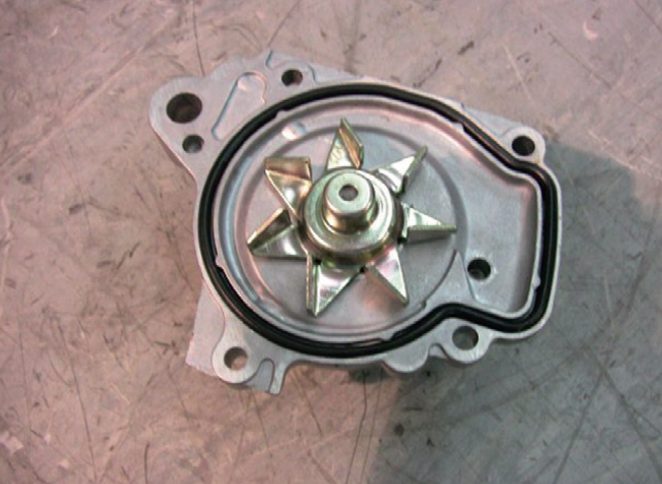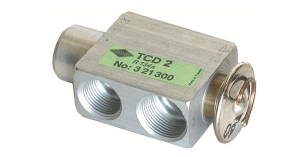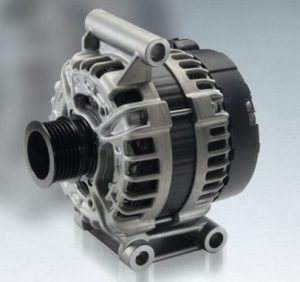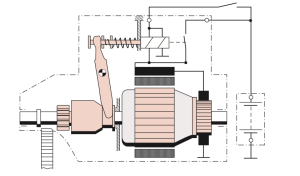Introduction: Water pumps are essential components of various systems, from home plumbing to industrial machinery. They work by creating pressure and pushing water through a system to perform a particular function. One crucial part of a water pump is the impeller. In this blog post, we will explore what a water pump impeller is, how it works, and its importance.
What is a Water Pump Impeller? A water pump impeller is a rotating component that drives water through the pump and into the system it is serving. It is a critical part of the pump that converts rotational energy into fluid energy. Impellers come in various shapes, sizes, and designs, depending on their specific application. Some of the most common types of impellers include closed, semi-open, and open impellers.
How Do Water Pump Impellers Work? The impeller’s design and shape determine how water flows through it and the pump. When the impeller rotates, it creates a centrifugal force that pulls water into its center, which increases the water’s velocity. As the water moves towards the edge of the impeller, the impeller’s vanes push it towards the discharge port. The impeller’s rotation creates a pressure difference between the inlet and outlet of the pump, which causes the water to flow through the system.
Importance of Water Pump Impellers: Water pump impellers are crucial components that play a significant role in the operation of a water pump. Without an impeller, a water pump cannot move water through the system. The design and efficiency of an impeller also affect the performance and energy efficiency of the pump. Choosing the right impeller for a particular application can lead to better performance, reduced energy consumption, and longer pump life.
Maintenance and Replacement of Water Pump Impellers: Like any mechanical component, impellers require regular maintenance to ensure optimal performance. Regular inspection and cleaning of the impeller can prevent clogging, corrosion, and wear that can affect its efficiency. If an impeller is damaged or worn, it may need to be replaced. Replacing an impeller requires the disassembly of the pump and can be a challenging task. It is essential to follow the manufacturer’s instructions and use the correct tools and replacement parts.
Conclusion: Water pump impellers are critical components of water pumps, and their proper design, maintenance, and replacement are essential for optimal performance and longevity. Understanding how impellers work and their importance can help in selecting the right impeller for a particular application and ensuring the pump operates efficiently. Regular maintenance and inspection of the impeller can prevent issues that can affect the pump’s performance and lead to costly repairs.

Types of Impellers: As mentioned earlier, there are various types of impellers, including closed, semi-open, and open impellers. Closed impellers have vanes that are entirely enclosed within a casing and are ideal for high-pressure applications. Semi-open impellers have one side of the vanes exposed and are suitable for handling liquids with suspended solids. Open impellers have vanes that are entirely exposed and are best for handling fluids with high levels of solids or viscosity.
Materials Used: Impellers can be made from a variety of materials, including metals, plastics, and composites. The choice of material depends on the application and the fluids being pumped. For example, stainless steel impellers are suitable for corrosive liquids, while plastic impellers are ideal for handling acids or alkalis.
Factors Affecting Impeller Performance: Several factors can affect the performance of a water pump impeller. One crucial factor is the impeller’s size and design, which can impact the pump’s flow rate and pressure. The pump’s motor speed and power also affect the impeller’s performance, as higher motor speeds can increase the impeller’s velocity and the pump’s flow rate. The impeller’s clearance with the pump casing can also impact performance, as tighter clearances can lead to increased pressure and flow rate but can also cause wear and damage to the impeller.
Replacing an Impeller: Replacing an impeller can be a complex task, as it requires disassembling the pump and removing the old impeller before installing the new one. It is essential to use the correct replacement part and follow the manufacturer’s instructions carefully to ensure the pump operates efficiently and safely. In some cases, it may be more cost-effective to replace the entire pump rather than just the impeller, especially if the pump is old or has other worn components.
In summary, water pump impellers are critical components that play a vital role in the operation and efficiency of a water pump. Understanding the types of impellers, materials used, and factors affecting their performance can help in selecting the right impeller for a particular application and ensuring the pump operates efficiently. Regular maintenance and inspection of the impeller can prevent issues that can affect the pump’s performance and lead to costly repairs.
Advantages of Water Pump Impellers:
- Efficient Water Flow: Water pump impellers are designed to create a centrifugal force that pulls water into the center and then pushes it out towards the discharge port. This design allows for efficient water flow and helps to maintain a consistent pressure and flow rate.
- Customizable Design: Impellers can be designed in various shapes and sizes, allowing them to be customized for specific applications. This means that the impeller can be tailored to provide optimal performance for a particular pump and system.
- Reduced Maintenance: Water pump impellers require less maintenance than other types of pumps. They are generally more durable and have fewer moving parts, reducing the likelihood of wear and tear and the need for frequent repairs.
- Energy Efficient: The efficient design of water pump impellers means that they require less energy to operate than other types of pumps. This can result in significant energy savings over time.
Disadvantages of Water Pump Impellers:
- Limited Application: Water pump impellers may not be suitable for all types of liquids. Certain fluids, such as highly viscous or abrasive liquids, may cause excessive wear on the impeller, reducing its efficiency and lifespan.
- Risk of Clogging: Impellers can become clogged with debris or other materials, which can reduce their efficiency and cause damage to the pump. Regular maintenance and cleaning can help to prevent this issue.
- Limited Pressure: Water pump impellers may not be suitable for high-pressure applications. In some cases, the impeller’s design may limit the maximum pressure that the pump can achieve.
- Replacement Costs: If an impeller becomes damaged or worn, it may need to be replaced. Replacing an impeller can be a costly and time-consuming process, especially if the pump must be disassembled to access the impeller.
In summary, water pump impellers offer several advantages, including efficient water flow, customizable design, reduced maintenance, and energy efficiency. However, they also have some limitations, including limited application, risk of clogging, limited pressure, and potential replacement costs. Understanding these advantages and disadvantages can help in selecting the right water pump and impeller for a particular application.








